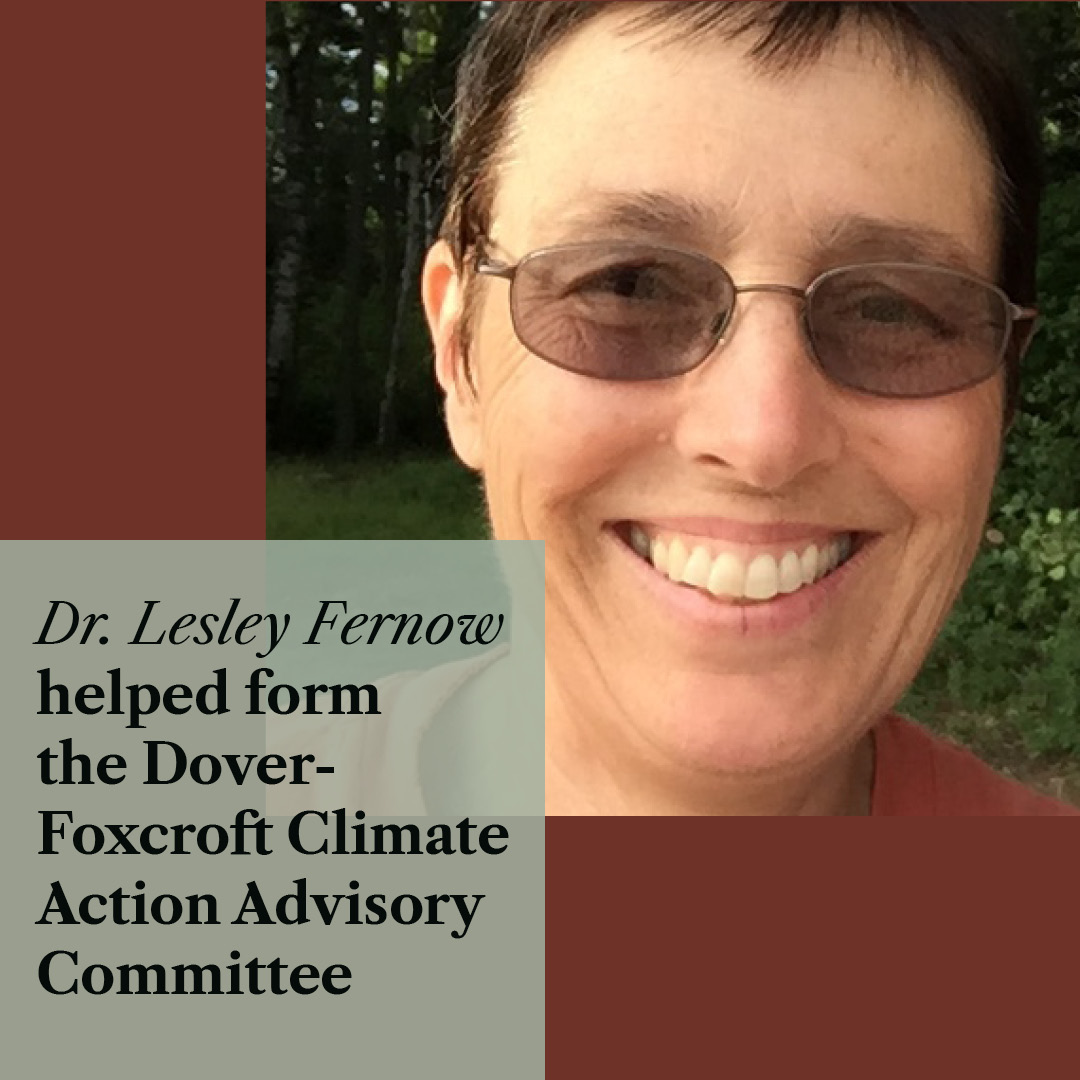
How 5 Dover-Foxcroft Residents formed a Climate Action Advisory Committee
Spurred to roll up their sleeves by accelerating climate change risks, Dr. Lesley Fernow and four fellow Dover-Foxcroft residents formed the Climate Action Advisory Committee (CAAC) in August 2021. The group’s goal is to bring climate change awareness to the local selectboard and to the county decision-making process.
The committee’s first order of business? Selecting actions from the Maine Won’t Wait climate plan to work toward, with the goal of having something to show at the end of 2022.
Dr. Fernow helps us understand the steps to forming the Dover-Foxcroft Climate Action Advisory Committee - and shares tips (and templates!) for getting started in your community.
- Tell us about forming the Dover-Foxcroft Climate Action Advisory Committee:
The Dover-Foxcroft Climate Action Advisory Committee (CAAC) was formed in August 2021 by a group of 5 local residents who are all committed to taking climate action. I have been involved with the Maine Won’t Wait Climate Equity subcommittee since Jan 2021, and have been quite engaged with the community in “spreading the word.” Last summer, I was approached by a former biology teacher to join her in this effort to bring climate change awareness to the local selectboard and county decision-making process by developing an advisory group. Spurred by the acceleration of the risks, the huge transformation that is occurring in public awareness, technologic advances, and recently earmarked potential funding for climate action, we felt now was the time to “roll up our sleeves”.
- What were the steps to getting Selectboard approval? How long did it take?
Our group first made a proposal presentation (PDF) to the Selectboard in August. They were excited to have direction and interest in the community on this issue. The Selectboard approved making our group a subcommittee at that meeting - and passed a formal resolution at the next meeting. We then created our organizational document (PDF) to define how we would work, which the Selectboard approved at the October meeting.
- What role does the Maine Won’t Wait climate plan take in the CAAC’s work?
We started with the Maine Won’t Wait plan - and looked at which local actions across the 8 domains we felt were immediately things we could work on with the goal to have something to show at the end of 2022. - Great! What are the goals?
To install 10 EV chargers, hold informational workshops and listening sessions, address improvement of some green spaces, assess climate readiness of the essential infrastructure with the EMA director, support expansion of heat pumps and weatherization and support local food production.
Also, in December we were informed about the Community Resilience Partnership and immediately started working on joining. To do this, we met with our local county Emergency Management Director, our town Manager, the soil and Water District and the Piscataquis County Economic Development Council director. With their support and that of many people in other sectors, we recently held our first climate resilience workshop to prioritize actions for our participation in the partnership.
- What does it mean for a town to plan for resilience? Why did the CAAC recommend joining the Community Resilience Partnership?
First of all, it requires looking at the truth about our warming planet directly and understanding that without substantial changes in our behavior life is going to get increasingly more difficult for most of us alive today. One part of resilience is mitigation of the climate harms that we are currently creating by direct efforts to reduce greenhouse gas emissions. The other necessary step is to plan for climate effects that we will not be able to prevent and figure out how to prepare for them. This requires creativity, adaptability, listening to everyone’s voices, and courage to think outside the box.
In my community it also requires courage to confront some people who continue to resist change and even are “climate change deniers.” We must reach beyond personal or local municipal boundaries if we are to thrive into the future. We need everyone on board.
- Do you have advice for Maine people who want to start or get involved in climate actions in their communities?
Getting involved with climate action has never been more urgent. A few ideas:- The Maine Won’t Wait Climate Plan is an excellent document that can be used as a template to help a community start.
- Look to the efforts of others to help you. Everyone involved in climate action is eager to give others a hand. Perhaps in your community the leaders will be fishermen, foresters, youth, emergency management folks, “green builders,” or an organic farm cooperative.
- Start a book club at your local library.
- Plan an Earth Day event.
- Take a trip to your waste water plant to find out where your water comes from.
- Look at your town’s comprehensive plan: any mention of climate?
- Join the Community Resilience Partnership
Most of all, don’t be discouraged or feel hopeless. Just start somewhere. Each of us can make a difference in some way.